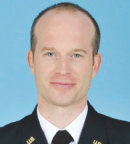IN HIGH-RISK patients with breast cancer and low expression of HER2 (HER2 low), a peptide vaccine targeting HER2, combined with granulocyte-macrophage colony-stimulating factor (GM-CSF), and given concurrently with trastuzumab, may help to prevent recurrence.
Final analysis of a randomized phase IIb trial demonstrated that the combination of nelipepimut-S plus GM-CSF with trastuzumab is safe, with no added toxicity compared with trastuzumab and GM-CSF alone, even after prolonged exposure.1 Although a planned interim analysis showed a benefit in patients with triple-negative breast cancer, the trial was stopped after data from a separate trial showed no benefit to adjuvant trastuzumab in women with HER2–low-expressing breast cancer.2 Nevertheless, the significant benefit seen in patients with triple-negative breast cancer continued to strengthen in the vaccine group with added follow-up after the interim analysis. According to the authors, these findings could position the nelipepimut-S plus trastuzumab combination as adjuvant therapy for early-stage triple-negative breast cancer and warrants additional study.

Guy Travis Clifton, MD
“We’re hopeful that these results could lead to a targeted therapy in the future for this group of patients, but also one that has less toxicity than currently available therapies,” said Guy Travis Clifton, MD, a Surgical Oncologist at Brooke Army Medical Center, Fort Sam Houston.
As Dr. Clifton explained, the majority of women with breast cancer have tumors that express some level of HER2. Although a subset of these patients with HER2-overexpressing breast cancer has been shown to benefit from targeted therapies such as the monoclonal antibody trastuzumab, approximately 70% to 80% of patients with breast cancer are not eligible for adjuvant trastuzumab. Nevertheless, because most of these patients’ tumors have HER2 expression, said Dr. Clifton, clinicians may be able to utilize vaccination that targets HER2.
Dr. Clifton and colleagues have investigated this possibility with nelipepimut-S, a peptide vaccine targeting HER2-expressing tumor cells. The researchers have used this agent in the adjuvant setting in patients who are clinically disease free to avoid the immunosuppression associated with patients who have metastatic disease as well as the immunosuppressive tumor microenvironment associated with established tumors. In prior studies, the combination of nelipepimut-S plus GM-CSF has been shown to be safe, with a favorable immunogenic profile and suggestions of clinical efficacy. Preclinical work indicates the vaccine targeting HER2 in combination with trastuzumab may work synergistically, added Dr. Clifton.
For this phase IIb trial, Dr. Clifton and colleagues evaluated adjuvant nelipepimut-S with trastuzumab compared with trastuzumab with GM-CSF alone in patients with HER2–low-expressing, high-risk breast cancer to prevent recurrence. Following publication of data from the NSABP B-47 trial in December of 2017, which confirmed that adjuvant trastuzumab had no benefit in patients with HER2–low-expressing tumors,2 the decision was made to stop the trial for safety and ethical reasons. At the 2019 ASCO–Society for Immunotherapy of Cancer (SITC) Clinical Immuno-Oncology Symposium, Dr. Clifton reported the final analysis of the trial with 7 months of added follow-up.
“We’re hopeful that these results could lead to a targeted therapy in the future for this group of patients, but also one that has less toxicity than currently available therapies.”— Guy Travis Clifton, MD
Tweet this quote
Benefit in Triple-Negative Breast Cancer
AS DR. CLIFTON reported, a total of 275 patients were enrolled in the phase IIb trial and were randomly assigned to receive placebo with GM-CSF (n = 139) or nelipepimut-S (n = 136). All enrolled patients also received trastuzumab once every 3 weeks for 1 year. GM-CSF alone or nelipepimut-S was given every 3 weeks for 18 weeks, starting with the third dose of trastuzumab, and boosters were given every 6 months for 24 months. Slightly more than half of patients in each arm received neoadjuvant chemotherapy.
As Dr. Clifton reported, the majority of patients experienced at least one treatment-related adverse event, but most of the treatment-related adverse events were grade 1 and 2. Most adverse events were anticipated local injection-site reactions and symptoms such as fatigue, said Dr. Clifton. There was no grade 4 or 5 adverse event, and there was no difference between the treatment groups. Analysis also showed no difference between the treatment arms regarding cardiac toxicity.
The trial had a median follow-up of 24.7 months. In the intention-to-treat analysis, there were 12 recurrences with the vaccine plus trastuzumab compared with 20 recurrences with trastuzumab plus GM-CSF alone. There were 4 recurrences in the subset of patients with triple-negative breast cancer who received nelipepimut-S with trastuzumab compared with 13 recurrences in those who were given trastuzumab plus GM-CSF.
In the intention-to-treat, disease-free survival population, the investigators observed no difference between the arms, with a 24-month disease-free survival of 89.9% in the vaccine arm vs 83.8% in the control arm (P = .18). In the hormone receptor–positive subset of patients, there was again no difference. However, in the subset of patients with triple-negative breast cancer, which included 53 patients in the vaccine arm and 44 patients in the control arm, the disease-free survival was 92.6% in the vaccine arm vs 70% in the control arm at 24 months (P = .013).
“Obviously, this is a subset in a trial that stopped it at interim analysis, but we think the results are intriguing in light of what we now understand about triple-negative breast cancer being a more immunogenic subtype of breast cancer that’s more responsive to immunotherapy,” Dr. Clifton concluded. “The benefit observed in patients with HER2–low-expressing triple-negative breast cancer needs to be confirmed in a larger phase III trial, and that’s something that’s currently being pursued.” ■
DISCLOSURE: Dr. Clifton reported no conflicts of interest. The study was sponsored by Cancer Insight, LLC; Genentech, Inc.; and SELLAS Life Sciences Group, Inc.
REFERENCES
1. Hickerson A, Clifton GT, Hale DF, et al: Final analysis of nelipepimut-S plus GM-CSF with trastuzumab versus trastuzumab alone to prevent recurrences in high-risk, HER2 low-expressing breast cancer: A prospective, randomized, blinded, multicenter phase IIb trial. 2019 ASCO-SITC Clinical Immuno-Oncology Symposium. Abstract 1. Presented March 2, 2019.
2. Fehrenbacher L, Cecchini RS, Geyer CE, et al: NSABP B-47 (NRG Oncology): Phase III randomized trial comparing adjuvant chemotherapy with Adriamycin and cyclophosphamide followed by weekly paclitaxel, or docetaxel and cyclophosphamide with or without a year of trastuzumab in women with node-positive or high-risk node-negative invasive breast cancer (IBC) expressing HER2 staining intensity of IHC 1+ or 2+ with negative FISH (HER2-Low IBC). 2017 San Antonio Breast Cancer Symposium. Abstract GS1-02. Presented December 6, 2017.


